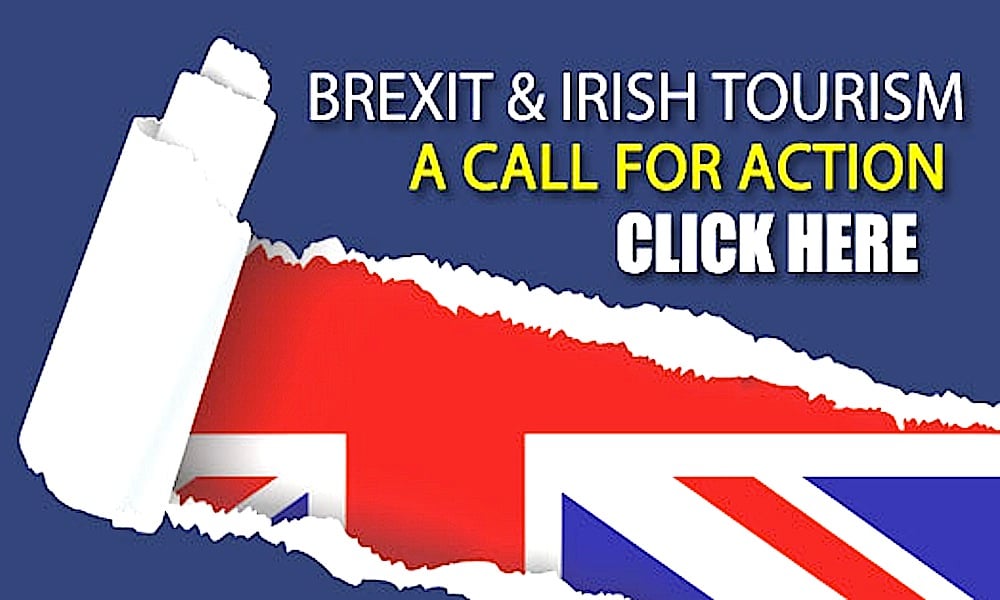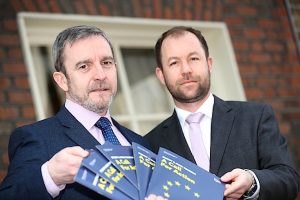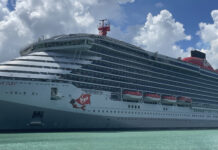
Brexit poses the biggest threat to Ireland’s largest indigenous industry since the 2008 global crash, says the Irish Tourist Industry Confederation (ITIC), the umbrella group for the tourism industry in Ireland, which has published a report that warns of the sector’s vulnerability to Brexit and calls on the Government to support the sector with proactive policies.
ITIC, along with representatives from Aer Lingus, the Irish Hotels Federation, the Guinness Storehouse – Ireland’s biggest visitor attraction – and Irish Ferries, launched the ‘Brexit & Irish Tourism – A Call For Action’ report in Dublin.

ITIC represents airlines, hotels, tour operators, ferry companies, visitor attractions and other tourism interests. The report warns that failure by the Government to put policies in place to mitigate the adverse consequences of Ireland’s largest tourism market leaving the EU will damage jobs and regional growth.
The report also warns that Brexit represents the biggest challenge to the sector since the global crash of 2008. Back then the value of the UK market to Irish tourism fell by 23% in the space of 12 months.
Tourism is Ireland’s largest indigenous sector, employing over 220,000 people, providing vital exchequer returns and regional balance. In 2016, the Irish tourism industry was worth over €8 billion, according to ITIC.
The report identifies the immediate impact of Brexit as being the weakening of sterling, which damages Ireland’s competitiveness and is having a negative impact on tourism and hospitality businesses. It calls on the Government to provide a €12 million boost to tourism budgets to consolidate UK market share, diversify into new markets and provide a package of supports to tourism businesses.
The report also states that in the medium to longer term the terms of any new EU-UK deal must be mindful of the needs of Irish tourism. In particular, the report identifies four areas as requiring special attention in negotiations: the preservation of the Common Travel Area and a soft border; maintenance of liberalised aviation access between the EU and UK; continued support for an all-island approach to marketing; and harmonisation of regulatory regimes across the island.
Paul Gallagher, ITIC Chairman, said: “The UK is Ireland’s largest visitor source market with an estimated 3.9 million arrivals in 2016 valued at over €1 billion to the national economy. Over two in every five visitors to Ireland come from the UK and Brexit poses a unique and unprecedented challenge. It is absolutely vital that everything is done to support the tourism sector and underpin jobs.”
Recent research in Britain conducted by RedC points to a 7% drop in outbound travel intentions. More significantly, it indicates that UK travellers will cut short their trips and that 37% of respondents intend to spend less by downgrading their choice of accommodation and limiting their holiday activities.
ITIC pointed out that Brexit will have a particularly negative impact on Dublin and the border regions.
Eoghan O’Mara Walsh, Chief Executive, ITIC, said: “The tourism euro is as valuable as the euro earned by any other export sector and more valuable in the context that tourism is one of the few industries that can provide regional balance and sustainable local employment.
“The Government must be proactive and help the sector consolidate its market share in Britain but, crucially, diversify into other markets. Diversification cannot happen on its own – the State agencies for tourism need to be given the resources to increase traffic and business from Europe and North America.”
Paul Gallagher added: “Tourism is defined by the free movement of people and the idea of a hard border on the island of Ireland, and corresponding travel disruption and cost, would be a major backward step for Irish tourism. Tourism marketing budgets have been reduced by 45% in the last six years and these must be restored without delay.”
Eoghan O’Mara Walsh stressed that the tourism sector was very exposed to Brexit and required a strategic support framework. ITIC is calling for a €12 million support package for Irish tourism to allow for market diversification and to support the industry and vulnerable tourism enterprises.
“Other export sectors from agri-food to manufacturing have received specific Government supports to Brexit-proof them – regrettably tourism has not received such supports. Tourism cannot be take for granted as too many jobs are at risk.”
Paul Gallagher added: “The Irish tourism industry can be positive about its future but we must be mindful of threats and risks and Brexit is first among equals in that regard. As a sector, if pro-tourism policies are adopted and appropriate investment strategies implemented, we can add another 50,000 jobs by 2025, but Brexit poses a real risk to sustained growth unless the Government acts now.”




